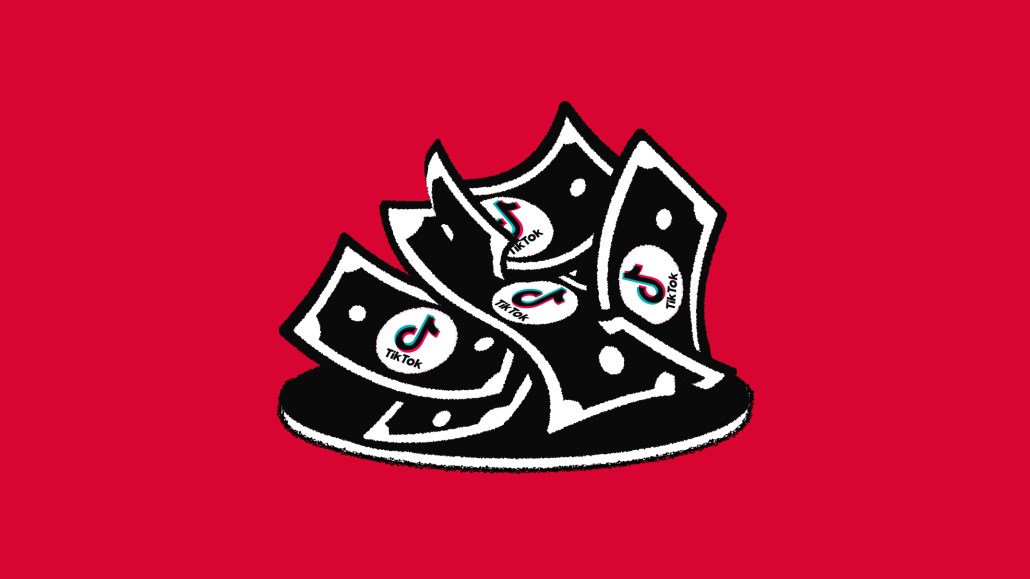Secure your place at the Digiday Media Buying Summit in Nashville, March 2-4
Why health care brand Supergut traded Facebook for TikTok

Gut health care company Supergut is revamping its social media strategy to focus on TikTok as its primary social media platform. To accomplish this, the brand is investing its marketing dollars on TikTok with short form videos ads — and moving those dollars from Facebook to TikTok.
Supergut launched as Muniq in 2020, but rebranded early this year. The brand quickly reached 10,000 customers who bought its products as it focused social media efforts on Facebook and paid ads to reach individuals who struggle with diabetes and other chronic illnesses. But that early success with Facebook hasn’t sustained and, as a result of the platform’s creative challenges, Supergut shifted its focus to TikTok.
“The audience on TikTok prefers authenticity over perfection, and wants to be fascinated and educated, not just advertised to,” Supergut founder and CEO Marc Washington said of audience differences on Facebook and TikTok.
By using TikTok, the brand is targeting Gen Z women, busy parents looking for better food options for their families and “gut-aware” millennials who are curious about gut health or are already investing in it. “While TikTok’s demo skews younger, it’s also one that’s more open to learning about and exploring the latest health trends,” said Washington.
As social media shifts from photos and graphic images to vertical video-focused TikTok, Instagram Reels and YouTubeShorts, Supergut is seizing the moment. The brand is using the hashtag #GutTok to introduce people to its products, engage them in the conversation about trending gut health topics and share information about the science behind the microbiome.
As far as ad spend, Washington said that in the first half of 2022, Supergut was spending 85% of its paid media budget on Facebook and Instagram and 15% on other digital channels. Since July, the brand has shifted 40% of its ad spend to TikTok ads. With that said, it is unclear how much of Supergut’s advertising budget was allocated to TikTok, as Washington declined to comment on figures.
Similar to gut health beverage brand Poppi, Supergut’s goal is to attract consumes who want to learn more about gut health, Supergut’s products and the science behind them as soon as possible. Supergut’s strategy is to create high-value social content and post it where people are most likely to engage with it, as opposed to publishing photos with captions.
Facebook’s ad products changed dramatically after iOS 14 was released. According to Washington, Facebook was no longer a reliable source of efficient customer acquisition due to iPhone users’ ability to opt out of app tracking.
“For us, this ‘crisis’ became an opportunity to shift more of our attention and resources to organic content with the ultimate goal of building up our own marketing distribution channels as well as influencers and podcasts, both of which are already bearing fruit,” said Washington. “The fact that gut health was taking off on TikTok made the timing work even more in our favor.”
Gen Z has been bringing the conversation about gut health to life not only as a hashtag, but also by leading the conversation.
“It’s a place where Supergut can tackle something heady like gut health in an authentic way while still having fun with its audience,” said Jinia Shembekar, strategy director at content marketing agency Manifest. “In moving away from traditional marketing tactics, the brand has found success and value in creating high-quality, engaging and shareable content.”
More in Marketing

Future of Marketing Briefing: AI’s branding problem is why marketers keep it off the label
The reputational downside is clearer than the branding upside, which makes discretion the safer strategy.

While holdcos build ‘death stars of content,’ indie creative agencies take alternative routes
Indie agencies and the holding company sector were once bound together. The Super Bowl and WPP’s latest remodeling plans show they’re heading in different directions.

How Boll & Branch leverages AI for operational and creative tasks
Boll & Branch first and foremost uses AI to manage workflows across teams.








